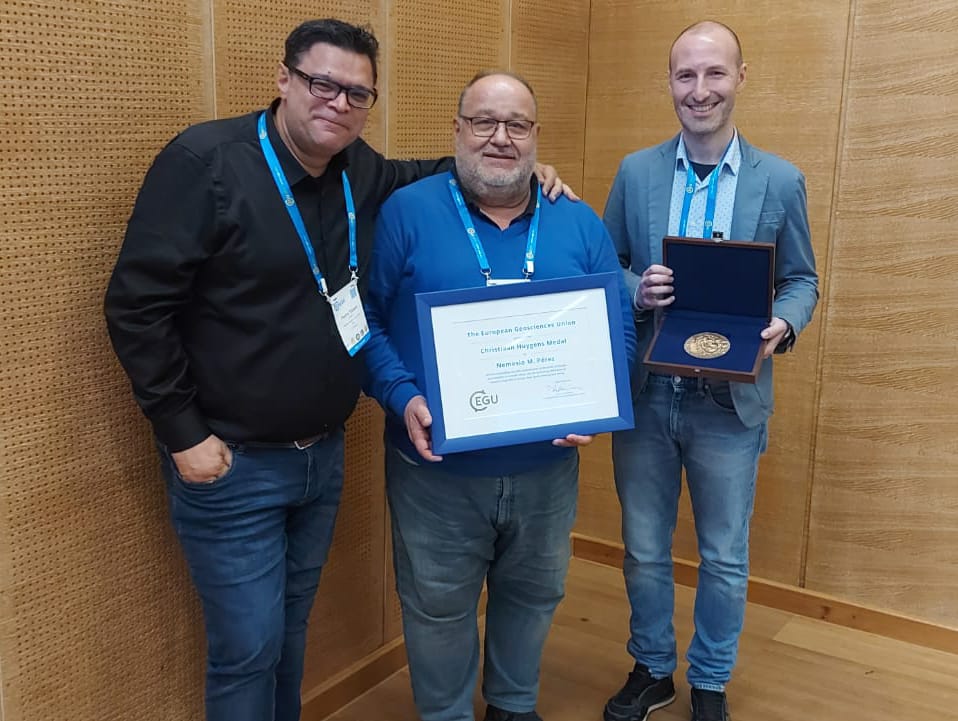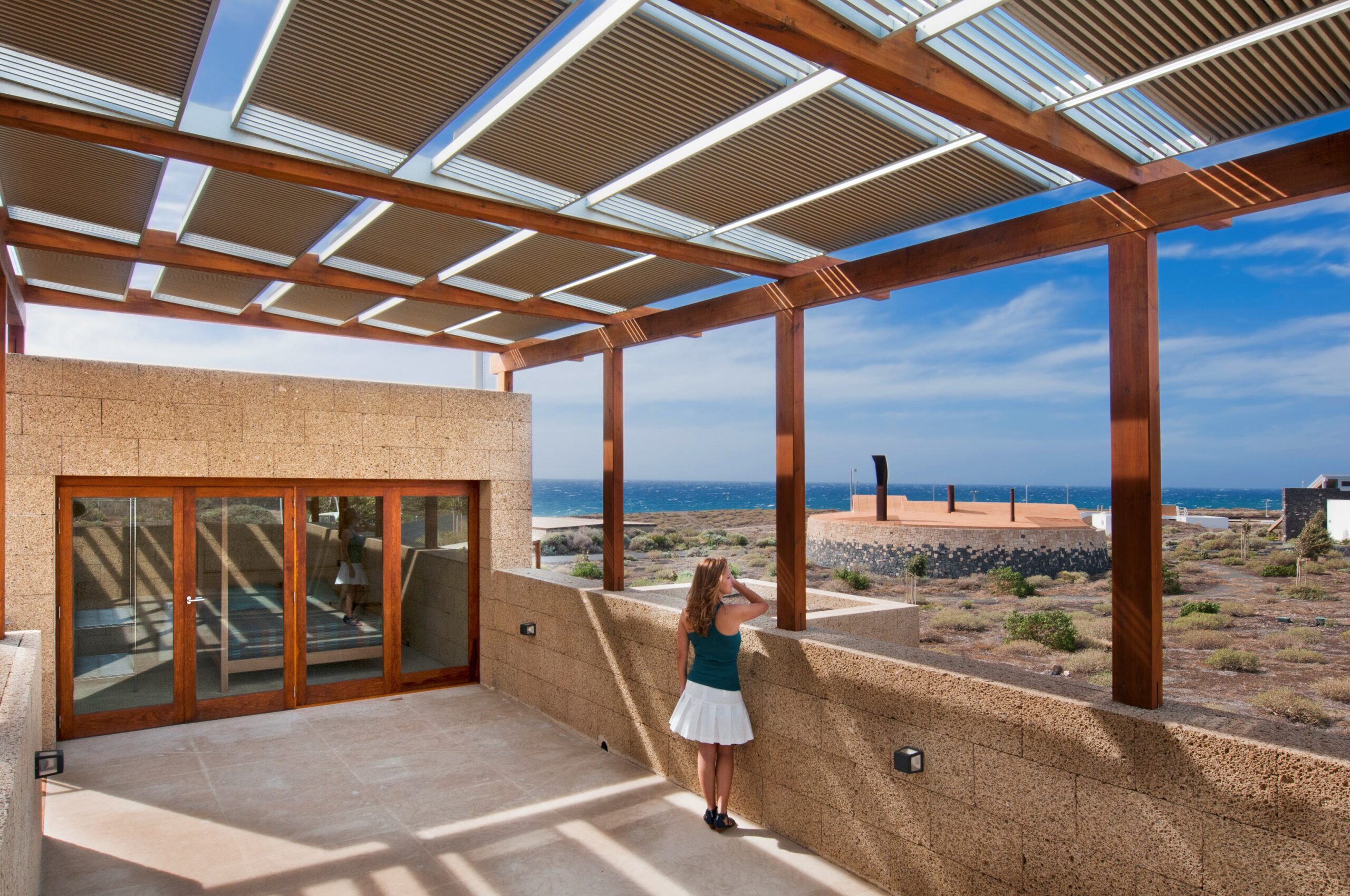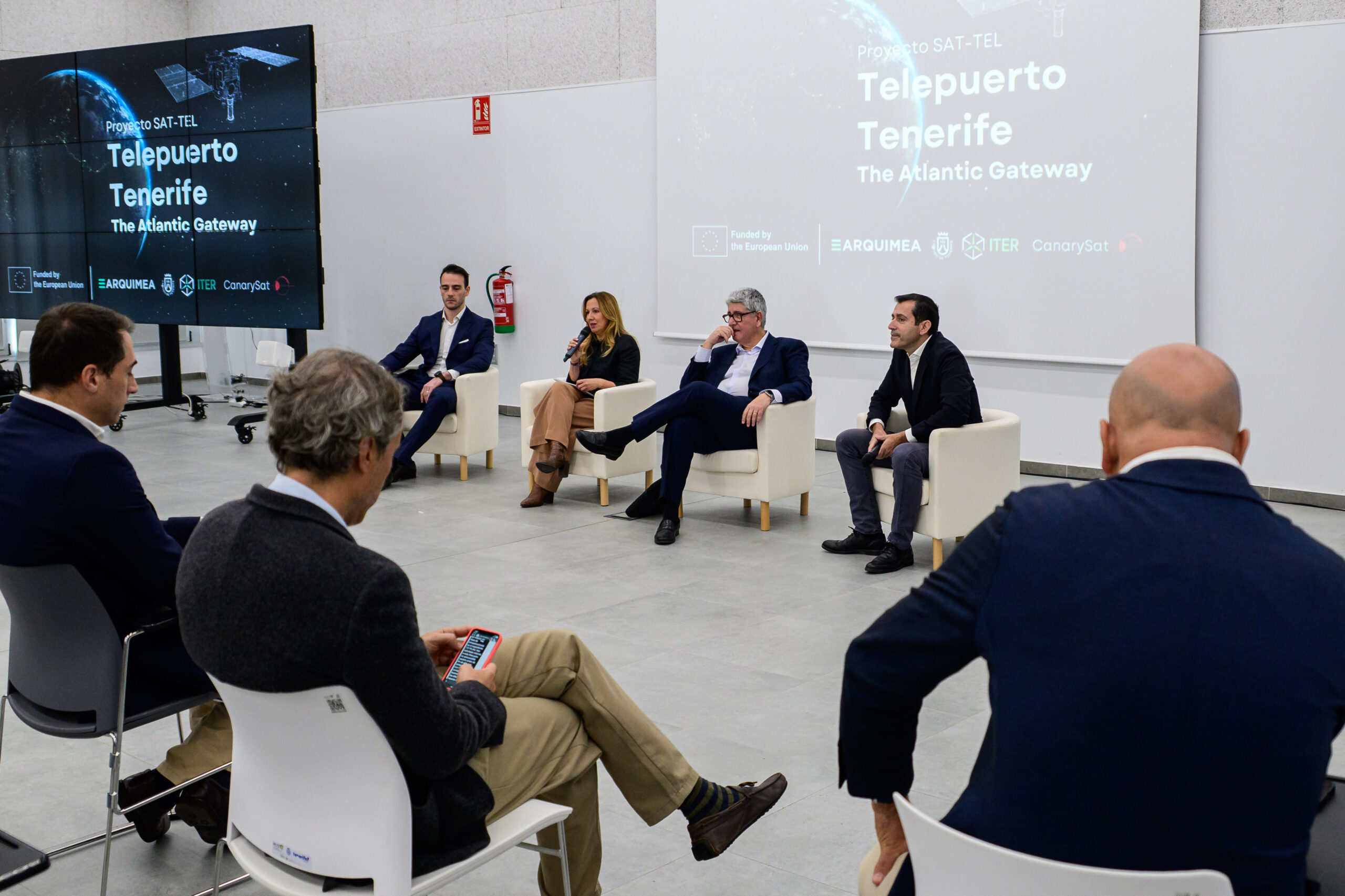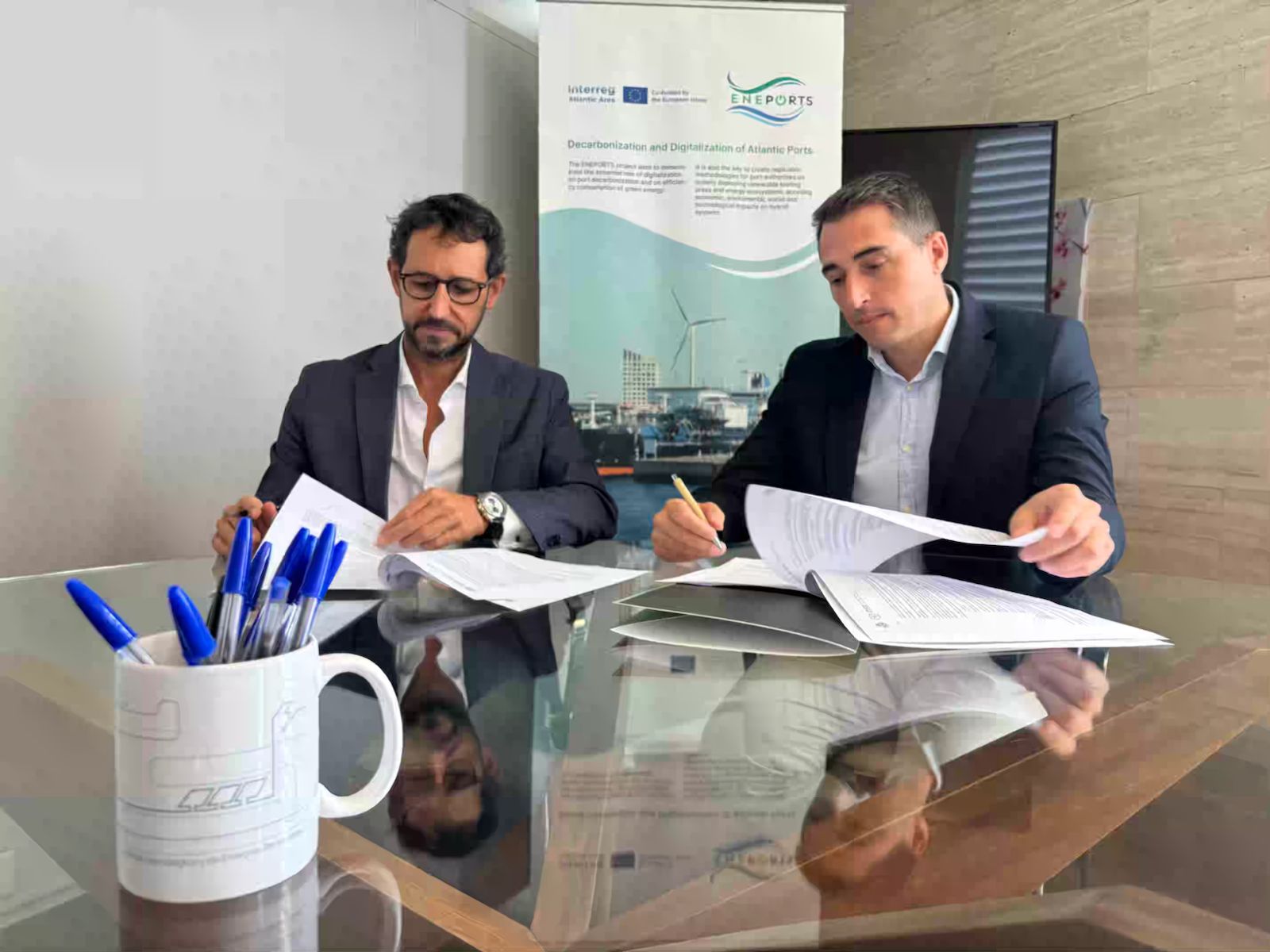Esta medalla es el reconocimiento a sus destacadas contribuciones científicas al estudio de la geoquímica del gas del suelo en áreas volcánicas, y por promover programas internacionales de investigación en Europa, Asia, América Central, Sudamérica y África.
La División de Sistemas de Datos e Instrumentación de Geociencias de la Unión Europea de Geociencias (EGU) ha hecho entrega de la Medalla Christiaan Huygens 2024 al Dr. Nemesio M. Pérez, Director del Área de Medioambiente del ITER y Coordinador Científico del Instituto Volcanológico de Canarias (INVOLCAN).
El acto de entrega se realizó ayer 16 de abril de 2024 a las 19:00 horas en la ciudad de Viena (Austria) en el marco de la mayor conferencia internacional de Ciencias de la Tierra que se celebra anualmente en Europa, “The General Assembly of the European Geosciences Union (EGU)”
Tras la entrega de dicho reconocimiento, el Dr. Nemesio Pérez impartió la conferencia “The silent degassing of volcanoes: a useful tool for volcanic surveillance and a significant contributor to the global CO2 emission from subaerial volcanism”
La EGU es un evento anual que atrae a geocientíficos de todo el mundo y cubre una amplia gama de disciplinas en las ciencias terrestres, planetarias y espaciales. En su edición anterior, EGU 2023, participaron más de 19.000 personas procedentes de 121 países.
El ITER y el INVOLCAN están representados en la EGU 2024 con un total de 28 comunicaciones científicas, 22 de las cuales son lideradas por científicos de los propios institutos y 6 por científicos vinculados a otras instituciones científicas y académicas, como la University of Manchester (Reino Unido), Université libre de Bruxelles (Bélgica), Università degli Studi di Napoli “Parthenope” (Italia), Istituto per il Rilevamento Elettromagnetico dell’Ambiente, IREA-CNR (Italia), Universitat de Barcelona (España) y el Instituto de Productos Naturales y Agrobiología, IPNA-CSIC (España).
De las 28 comunicaciones científicas presentadas, 15 están relacionadas con la monitorización geofísica y geodésica de sistemas volcánicos activos en las islas de El Hierro, La Palma, Lanzarote y Tenerife; 6 están ligadas a la exploración geotérmica de superficie en las islas de La Palma y Tenerife mediante el uso de métodos geofísicos y geoquímicos; 3 se centran en investigaciones volcanológicas sobre La Palma, Campi Flegrei (Italia) y Kilauea (USA), y las restantes 4 abordan temas como los peligros volcánicos, las ciencias sociales en el ámbito de la volcanología, la hidrología en terrenos volcánicos y el desarrollo instrumental.






